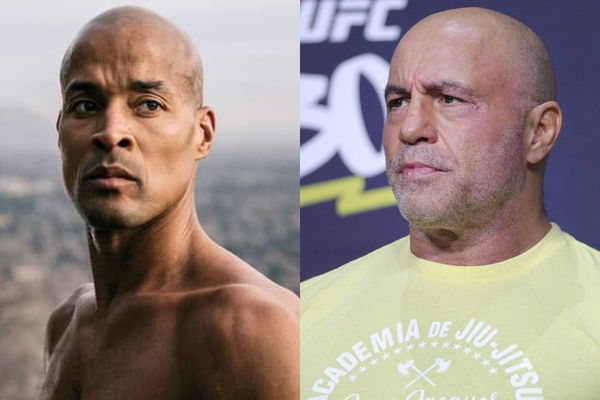David Goggins, the former Navy SEAL-turned-ultra-endurance athlete and motivational powerhouse, has become a legend in the fitness world for pushing the boundaries of human physical and mental endurance. From running ultramarathons to breaking pull-up world records, his extreme feats are the stuff of modern mythology. But for UFC commentator and podcast host Joe Rogan, it’s not the superhuman workouts that shock him the most — it’s something even more baffling.
During a recent episode of The Joe Rogan Experience, Rogan opened up about a curious conversation he had with Goggins that left him stunned. The 57-year-old broadcaster, who is himself a fitness enthusiast and martial arts practitioner, said he’s long admired Goggins’ seemingly impossible training regimens — such as running over 100 miles with little preparation, completing 24-hour obstacle courses, and putting people through his notorious “Hell Week” simulations that have challenged even top-tier UFC fighters.
But one question kept gnawing at Rogan: Why does he still do it?
It’s a fair question. Goggins isn’t trying to qualify for the Olympics, nor is he competing in high-stakes sporting events. He’s not even in the military anymore, where such mental toughness and resilience might be directly needed. And yet, he continues to live his life on the edge of physical capability — waking up at ungodly hours, pushing his body to the brink, and embracing suffering like it’s a daily ritual.
When Rogan finally confronted Goggins about his motivation, expecting perhaps a well-reasoned psychological explanation or a strategic mindset behind the madness, he was taken aback by the simplicity — and strangeness — of Goggins’ answer.
According to Rogan, Goggins replied: “Because I’m at war with myself.”
That answer, Rogan admitted, is what truly stunned him. “That’s the craziest thing,” Rogan said on his podcast. “It’s not the miles he runs, or the pain he endures — it’s the fact that he’s not doing it for a competition or career, but because he’s constantly trying to conquer his own mind.”
This intense internal drive — a sort of self-imposed psychological battle — is what separates Goggins from even the most elite athletes, Rogan believes. While most people train to reach a goal or win an event, Goggins’ objective is more existential: to harden his mind, to overcome weakness, and to stay sharp by willingly diving into discomfort every single day.
Goggins’ story of transformation adds another layer to this mentality. Once overweight and stuck in an unfulfilling job as an exterminator, he lost over 100 pounds in just three months to qualify for Navy SEAL training — an achievement that would define his trajectory for years to come. Since then, he’s been on a mission to inspire others to push beyond perceived limits, often sharing his mantra: “Stay hard.”
For Rogan, the fact that someone could be so relentlessly committed to self-discipline and mental toughness, even without an external incentive, is both mind-blowing and deeply compelling.
“Most people avoid pain,” Rogan said. “Goggins seeks it out. Not because he enjoys suffering, but because he knows that’s where growth happens.”
So while the world may marvel at Goggins’ 4 a.m. runs and punishing challenges, Rogan believes the real marvel lies in his mindset — one that views comfort as a trap, and struggle as a path to mastery.
And that, to Rogan, is the craziest thing of all.
